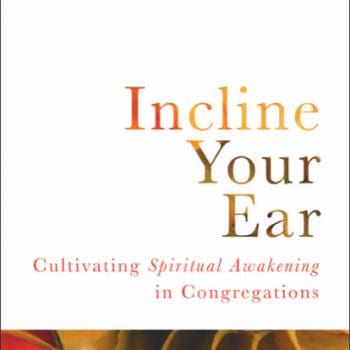 You could fill a library with books written about spiritual discernment. Here’s a distillation of what some of the better ones have to say.
You could fill a library with books written about spiritual discernment. Here’s a distillation of what some of the better ones have to say.
I have noticed about 12 key principles always mentioned in writings about discernment. They come from the Christian traditions of St. Ignatius (Catholic) and the Society of Friends (Quakers). When at a crossroads and in need of discernment, consider these principles and ask yourself the corresponding questions to get to the heart of the matter.
- Discernment hinges on a concrete life question; a choice between two or more options. What is the question I need to be able to answer in discernment?
- We need to be spiritually free (from fear, addiction, compulsion) in order to discern well. What fears or blocks are getting in the way of exploring this question?
- Good discernment leaves the outcome open and in God’s hands. (This principle is sometimes known as “holy indifference.”) Can I be at peace with whatever God shows me in this discernment, regardless of outcome? If not, do I at least desire to be open to God’s revelation in this matter? If the answer to that is “no,” then pray for the desire to be open.
- To discern well, we need to carefully notice the “movements of our heart” around the discernment question. What gives me deep peace, gratitude, energy, love and joy? What gives me anxiety, chaos, despair, deadness?
- Spiritual discernment is steeped in prayer. How am I praying about this question? What emerges as a result of my prayer?
- To discern well, we need a thorough knowledge of our options and the many practical considerations. What are the facts surrounding the question? Whose lives are affected by these options? What are the pros and cons for each option?
- The options under consideration must be weighed using head, heart and body wisdom. Which option feels most rational to me? Which one speaks to my heart? Which option “just feels right?” As I consider this choice, what bodily senses am I experiencing? Where do I feel this in my body?
- Good discernment listens to our truest and deepest desires. What is it that I most want in life? How do these options satisfy those “great desires?”
- Discernment involves imagining we have made the choice and reflecting on possible outcomes. If I make this choice now, how might I feel, act or be in the future? What does thinking about this choice make me feel like now?
- Good spiritual discernment always considers how the option under consideration affects your family, your community and “the least of our brothers and sisters,” meaning people who are poor, forgotten and hurting. How is my choice advancing God’s reign in the world? How is my choice affecting people who have fewer choices than I?
- Discernment doesn’t go on forever. At some point you must take action. As I make the choice, do I feel a sense of lasting peace? Where do I feel a sense of life energy? Where do I feel a block?
- Discernment needs to be evaluated after the action is taken. Judge it by its fruits. What has been the outcome of making this choice? Do I still feel love, joy, peace and clarity around the choice? Do I need to do more discernment?
Keep in mind that discernment can take some time, so practice patience. Also, discernment is not a magic bullet ensuring that all decisions work out perfectly. It’s a human process, and there are many ways we humans are flawed. Still, if we see discernment as a way of life, I believe our relationship with God will grow and our choices will improve as a result of this intentional practice.
For more about spiritual direction as I practice it, check out my website. If you have questions or comments about the content of Spiritual Direction 101, please let me hear from you.












